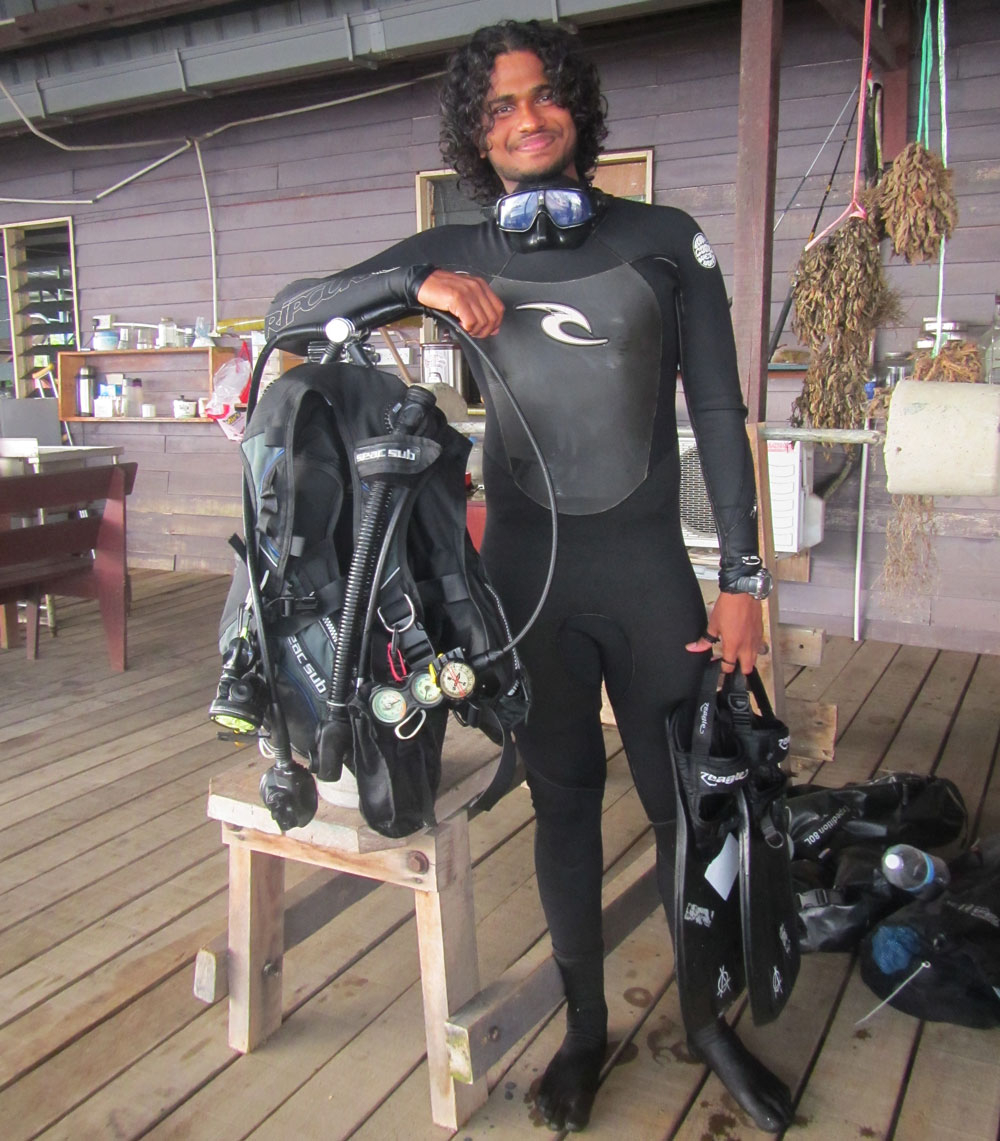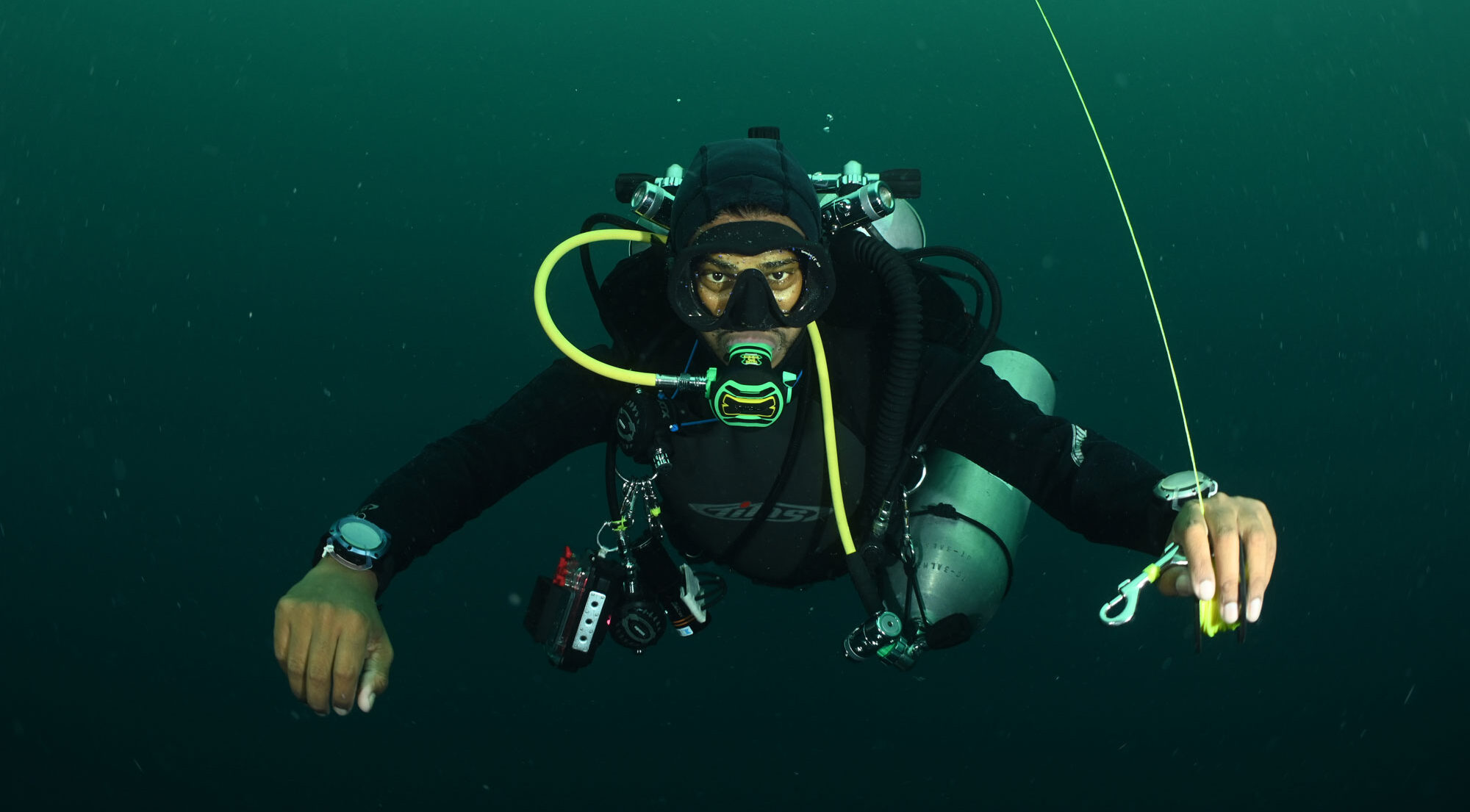On the idyllic diving and snorkelling paradise of Tioman Island, Alvin Chelliah’s day-to-day schedule is nothing short of varied.
On any given day, the Senior Programme Manager at Reef Check Malaysia might be found removing ghost fishing nets underwater, working with government agencies to curtail illegal activity, conducting beach clean-ups, processing reports for sponsors, replanting corals from damaged reefs, or providing education programmes to students in schools.
“In this line of work, nothing’s really typical,” Alvin explains.
Punctuating the point, he describes a call his team received from the week before about a cluster of menacingly dark orbs of tar floating in from the waters and washing up on shore.
“We are not 100 percent sure what these tar balls actually are, but they look like these lumps of oil that are semi solid, with an almost plasticine-kind of texture,” he describes. “When they wash up on shore and it gets hot around the afternoon, they start to melt into black oil and they will stick to everything from the sand to the rocks.”
He suspects that the phenomenon is a result of ships illegally dumping engine oil into the ocean. Because the dumping likely happened miles away and days before, finding the perpetrators will likely prove difficult.
Removing these globs of black grease and getting to the bottom of their origins is just part of Reef Check Malaysia’s work. Founded in 2007 as part of the global Reef Check Network, the organisation’s main aims are focused on monitoring the health of coral reefs, training volunteers, and working with the local community.

The crown jewels of the ocean
A few years after joining Reef Check in 2011, Alvin moved to Tioman full time to head up Cintai Tioman, a long-term programme to protect the area’s coral reefs while at the same time enhancing the livelihoods of the local community.
A marine scientist by training, his first encounter with coral reefs was on Perhentian Island at a young age.
“That was when I was first introduced to snorkelling and scuba diving,” he shares. “I started diving while I was in school and I really fell in love with the ocean. Coral reefs were just amazing to me, it was this whole new world.”
What is it about this region’s coral reefs that attract and enamour divers, snorkelers, and travellers from across the globe? Alvin notes that Malaysia is particularly fortunate to be partly situated in the Coral Triangle, a six million square kilometre section of the ocean that’s a treasure trove of biodiversity.
“This region of the world has more coral species and reef fish species than anywhere else in the world,” he emphasises. “It’s like the epicentre of coral reefs.”
And while the reefs in the Triangle appear to be relatively resilient against the effects of climate change and warming ocean temperatures, protecting them from the threat of large-scale human activity remains a necessary endeavour, and a complex, multifaceted one at that.
When it comes to Malaysia’s underwater ecosystems, Alvin shares that destructive fishing methods like fish bombing in Borneo and development in the peninsula currently constitute some of the biggest threats. While the former results in explosions that shatters the calcium carbonate structure of the coral reef, the latter leads to large amounts of sedimentation that pollute the water and smother the reefs.
View this post on Instagram
High and low tides
In Tioman island, a rather delicate relationship exists between the health of its coral reefs and the tourism industry on which many islanders depend. While uncontrolled, environmentally irresponsible tourist activity is detrimental to the area’s marine life, tourism remains essential to the locals’ livelihoods.
There is, however, a way to maintain a fine balance. For Alvin and his colleagues at the Cintai Tioman project, the answer lies in sustainable tourism practices. “We need to get out of this idea that more is better. We don’t need large quantities, what we need is high quality tourism,” he asserts.
To achieve this, the programme’s work involves engaging with local diving businesses, snorkel guides, and hotel operators to offer assessments, training and guidance on reducing their impact on the marine environment.
It’s not all smooth sailing, though. “We have been chased out before,” the programme manager admits, recalling interactions with some local business owners who were less than enthusiastic about making changes to the way they operate.
On a large-scale level, he reveals that one of the main challenges to his work is a reluctance to act on the part of politicians, government agencies and people in power. “The solutions are here, they’re available, they’re not difficult to do, but it’s the willpower that is lacking.” He adds, “They just don’t see the value or they’re only thinking short-term.”
View this post on Instagram
Ripples that become waves
Despite the hurdles, Alvin continues to be optimistic about the future of the reefs: “I always say, ‘The day I feel like we’re not making any progress is the day I’m out of this’”.
After over a decade working with Reef Check Malaysia, he and his wife, fellow marine scientist and programme manager Chen Sue Yee, are seeing the fruits of their efforts.
“A big high point is watching the kids who went through our programme while they were ten-year-olds or in their teens, now finishing school and joining us as part of the Tioman Marine Conservation Group, getting their diving licence and going out with us to remove ghost nets and do surveys.”
It has also been heartening to witness members of the local community actively getting involved with the project in growing numbers.
“We started with about five of them, taught them how to dive, taught them some basic knowledge about the marine ecosystem,” he recounts. It didn’t take long before they were joining in the work of monitoring, rehabilitating, and replanting reefs. Today, the number of islanders aboard the project’s mission stands at over 65.
“We can see that there’s interest from the local communities, and I think as long as that exists, there is hope for us and for the reefs.”
For more information on Reef Check Malaysia’s work, visit reefcheck.org.my. Keep updated by following Reef Check Malaysia on Facebook and Instagram.







